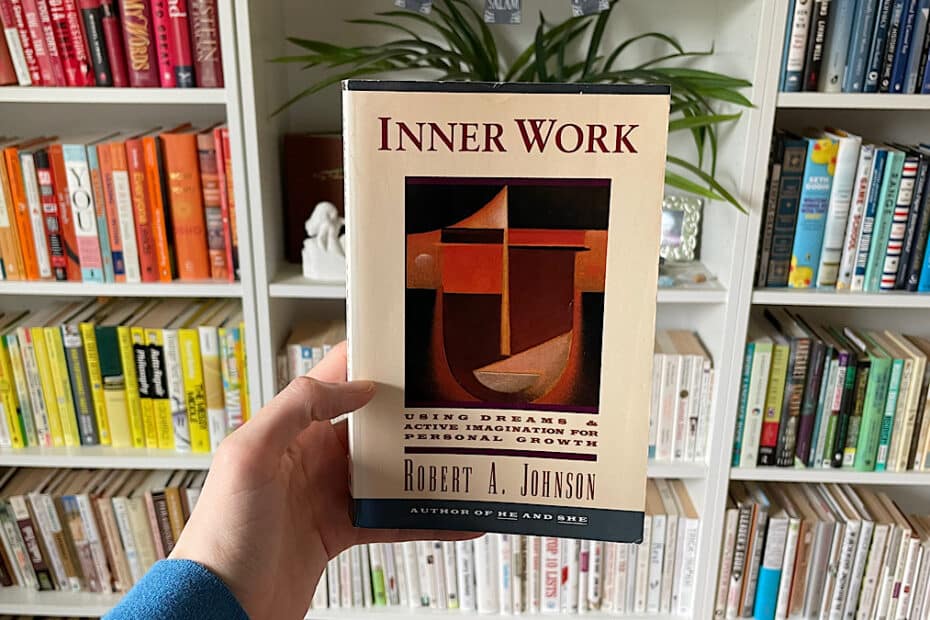“When you have a dream that seems to be significant—maybe violent, nightmarish, but you feel that there is some import in it—in the morning, or even in the middle of the night, before you forget the dream, sit in your bed and close your eyes. Befriend the dream; just tell it, ‘I am with you, and I am ready to come to you. Lead me wherever you want to lead me; I am available.’ Just surrender to the dream. Close your eyes and move with it, enjoy it; let the dream unfold. You will be surprised at what treasures a dream is hiding, and you will see that it keeps on unfolding.”
Osho, Everyday Osho (Page 152)
“For a long while now I have trusted my dreaming self as wiser than that waking self whose head is cluttered with reason and practicalities, so by trying to control things that he sometimes forgets that the heart has reasons that reason does not know. When I dream, I never forget to trust myself.”
Sheldon B. Kopp, If You Meet Buddha On The Road, Kill Him! (Page 216)
“Psychotherapy patients also soon learn to be moved by their nocturnal visions as they discover that we are often wiser when we dream than when we are awake. Because the dreaming experience is unhampered by whorish Reason, and the dreamer is not distracted by the conventional wisdom of other people’s perspectives and expectations, we sometimes see most clearly when our eyes are closed.”
Sheldon B. Kopp, If You Meet Buddha On The Road, Kill Him! (Page 58)
“The ‘night sea journey’ is the journey into the parts of ourselves that are split off, disavowed, unknown, unwanted, cast out, and exiled to the various subterranean worlds of consciousness… The goal of this journey is to reunite us with ourselves. Such a homecoming can be surprisingly painful, even brutal. In order to undertake it, we must first agree to exile nothing.”
Stephen Cope, via The Body Keeps The Score (Page 125)
37 Robert A. Johnson Quotes from Inner Work To Convince You Dreams Aren’t Arbitrary
Excerpt: Dreams are NOT arbitrary. Dreams are a primary means of communication. Not convinced? These 37 quotes from Inner Work should change your mind.
Read More »37 Robert A. Johnson Quotes from Inner Work To Convince You Dreams Aren’t Arbitrary
“This is perhaps the essence of the meaning of these visionary experiences, as it is really the heart of Active Imagination itself: It is a way of learning from your own experience those profound truths of life that can’t be transferred from one person to another with words but can only be genuinely known through one’s own connection to the collective unconscious. In this sense, we can only learn what we already know at the unconscious level.”
Robert A. Johnson, Inner Work (Page 218)
“The ego’s relationship to the huge unconscious is like that of a tiny cork floating in the ocean. We often feel like that. We feel like a cork that is being tossed about in the ocean of life, completely at the mercy of the waves and storms that push and pull us. We seem to have little control or power over anything. The cork is nevertheless morally equal to the ocean, because it has the power of consciousness! Although the ego is small, it has this peculiar power of awareness that we call consciousness, and that special, concentrated power gives it a position that is as necessary, as strong, and as valuable as the seemingly infinite richness of the unconscious.”
Robert A. Johnson, Inner Work (Page 184)
“When a huge number of fantasies flood your mind, it often means that you haven’t been giving enough attention to the unconscious. It compensates your imbalance toward the outer world by flooding you with fantasy—which forces you into a kind of involuntary inner life.”
Robert A. Johnson, Inner Work (Page 169)
“Everyone who begins this art [of Active Imagination] has a lot of preconceived ideas about who ought to be there and what these inner characters ought to say. People expect to hear immediately noble speeches by the Great Mother or profound wisdom from an inner guru. These things often happen, but just as often we find ourselves looking at the depression we have refused to face, the sense of loneliness, emptiness, or inferiority we’ve always run from.”
Robert A. Johnson, Inner Work (Page 167)
“Any quality within you can be personified [through Active Imagination] and persuaded to clothe itself in an image so that you can interact with it. If you feel an inflation, you can go to your imagination and ask that inflation to personify itself through an image. If you vaguely feel a mood controlling you, you can do the same. It is the image that gives one a starting point. You can then enter into dialogue; you can interact; and you can move toward some kind of understanding.”
Robert A. Johnson, Inner Work (Page 147)
“You should not try to ‘dress up’ your imagination and make it sound proper, grammatical, or ‘refined.’ The object is to experience and record whatever flows out of your unconscious honestly in its raw, spontaneous form. You are not doing creative writing for other people’s eyes. This is a private matter between you and your own unconscious, between you and God, so let it be as rough, crude, incoherent, embarrassing, beautiful, or unregenerate as it may be when it comes spontaneously out of your unconscious. The results will be more honest—and more real.”
Robert A. Johnson, Inner Work (Page 133)
“It is not a good idea to try to make a ritual out of talking about your dream or trying to explain yourself to people. Talking tends to put the whole experience back on an abstract level. It gets contaminated with your desire to present yourself in the best light. Instead of a vivid, private experience, you wind up with an amorphous, collective chat. The best rituals are physical, solitary, and silent: These are the ones that register most deeply with the unconscious.”
Robert A. Johnson, Inner Work (Page 99)
“You will never find anything in the unconscious that will not be useful and good when it is made conscious and brought to the right level.”
Robert A. Johnson, Inner Work (Page 71)
“This is probably the single most important principle in dream work—the one that determines whether you will find the wisdom in your dreams. We have to recognize that dreams are intricate tapestries of symbolism, and each image represents something going on within our own selves.”
Robert A. Johnson, Inner Work (Page 69)
“Even a short, seemingly insignificant dream tries to tell us something that we need to know Dreams never waste our time. If we take the trouble to listen to the ‘little’ dreams, we find that they carry important messages.”
Robert A. Johnson, Inner Work (Page 44)
“It is in [the] exchange between the ego and the various characters who rise up from the unconscious and appear in my imagination that I begin to bind the fragmented pieces of myself into a unity. I begin to know, and learn from, the parts of myself I had never known before.”
Robert A. Johnson, Inner Work (Page 26)
“Our English word fantasy derives from the Greek word phantasía. The original meaning of this word is instructive: It meant: ‘a making-visible.’ It derived from the verb that means ‘to make visible, to reveal.’ The correlation is clear: The psychological function of our capacity for fantasy is to make visible the otherwise invisible dynamics of the unconscious psyche.”
Robert A. Johnson, Inner Work (Page 23)
“Our culture in the twentieth century has a tremendous collective prejudice against the imagination. It is reflected in the things people say: ‘You are only imagining things,’ or, ‘That is only your fantasy, not reality.’ In fact, no one ‘makes up’ anything in the imagination. The material that appears in the imagination has to originate in the unconscious. Imagination, properly understood, is a channel through which this material flows to the conscious mind. To be even more accurate, imagination is a transformer that converts the invisible material into images the conscious mind can perceive.”
Robert A. Johnson, Inner Work (Page 22)


